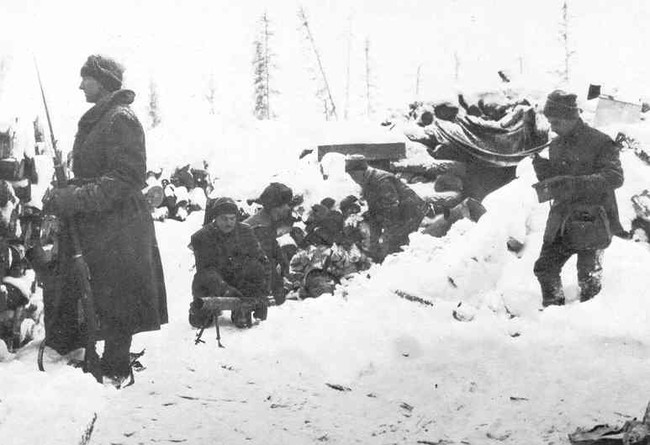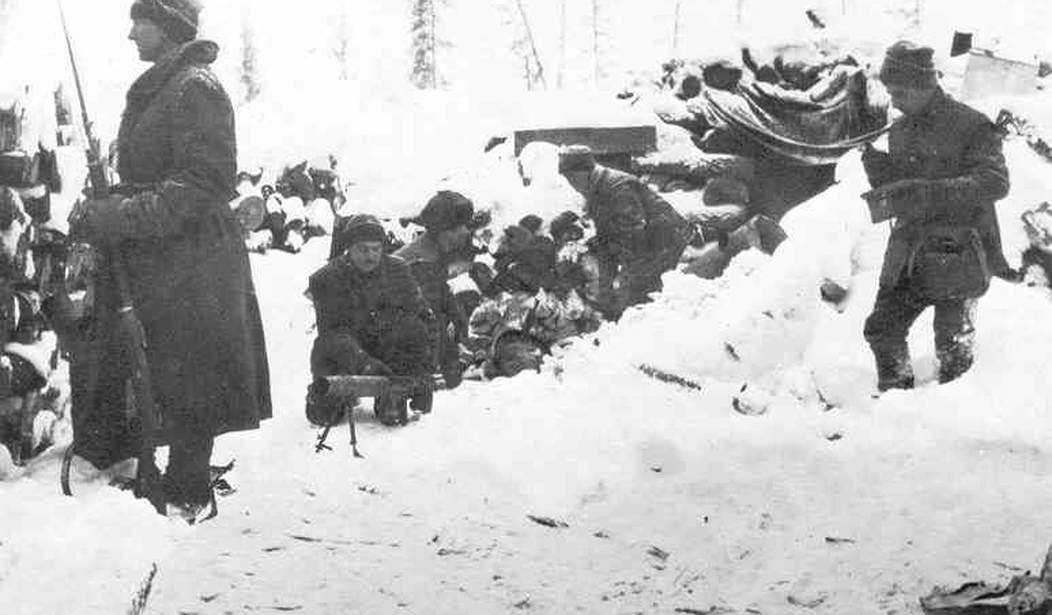
In the aftermath of the brazen dismemberment of Ukraine by Russia, many pundits have evoked the image of the annexation of the Sudetenland from Czechoslovakia by Germany in 1938. There is some truth in this though the occupation of the Rhineland and the anschluss with Austria are more appropriate as Crimea is obviously the first step in Putin’s strategy and clearly is not the last straw.
Most Americans are not familiar with a great lost opportunity. In 1918-1919 we had the chance to strangle communist Russia in its crib. We had the power to do so. And for a fleeting moment we had the will.
The Background– Greatly Abbreviated.
The communist revolution in Russia effectively knocked it out of the World War I. The Allies responded by landing troops in the Arctic ports of Archangel and Murmansk to safeguard substantial quantities of war materiel destined for use by the Russian Army. At first it was to prevent seizure by the Germans who were advancing through Finland and then to keep the supplies from falling into the hands of the Bolsheviks. In the type of uncoordinated way that most things in coalition warfare play out, eventually the Western powers, primarily Great Britain and the United States, decided to intervene in the Russian Civil War on behalf of the White Russian forces.
In the end, the butcher’s bill from World War I was simply too great for Britain to sustain yet another war and the isolationist impulses in America were too strong — and Woodrow Wilson too weak — to overcome. By 1920, the Allies were gone, leaving the communists in undisputed possession of Russia and a single US infantry regiment with battle honors won against the Russian army.
The Impact– Real and Specultive
Where the Bolsheviks had initially asked for Allied intervention for fear that the Germans were going to invade, once the Allies decided to snuff out the Bolshevik revolution, the Bolsheviks made Allied intervention a focal point of Russian patriotism. Arguably, once the Allies left this made it easier to portray the counter-revolutionary forces as unpatriotic and tools of Western domination. Ultimately, one can lay about 94 million deaths at the feet of the politicians who decided to let the Bolsheviks win in Russia.
Arguably, World War II would have been avoided. Between 1926-1933 the German military operated fighter, armor, and gas warfare schools inside the USSR to circumvent the limitations of the Versailles Treaty. It was here that blitzkreig was born. Without a Molot0v-Ribbentrob Pact to secure his eastern frontier, the attack on Poland might never have happened.
The Lesson
History never really repeats itself but the warp and woof of history has identifiable patterns. One of those is the availability of minute windows of opportunity into which a courageous and resolute man or men can definitively alter the course of events. Such a time is upon us now.
If the West does not desire a return to the Cold War era of a partitioned Europe and living under the threat of Mutually Assured Destruction it needs to take decisive action to Putin’s clearly telegraphed strategy. Like Bolshevik Russia, Putin’s regime is fragile. He needs outside enemies to provide the excuse to label rival centers of power as tools of Western intervention. He also needs successes, like Crimea, to stay in power. We can’t control the first part of the equation. But we don’t have to give him painless successes.












Join the conversation as a VIP Member